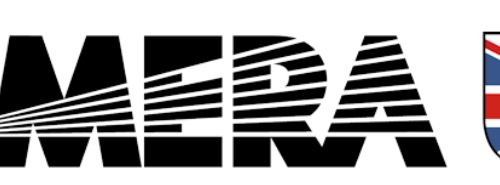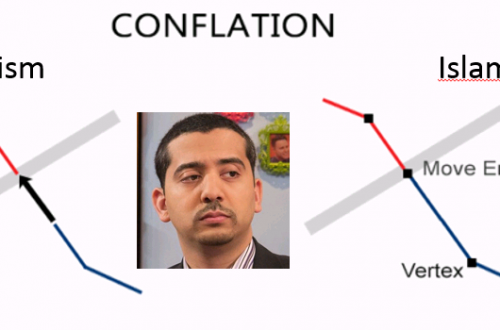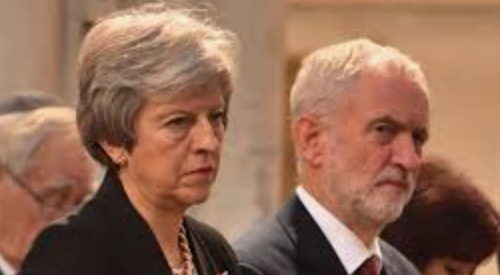This is Jon Pike’s statement which appears on Engage. Comments at Engage.
Open Letter from Jon Pike to Sally Hunt, General Secretary of the UCU
Dear Sally,
UCU Congress last week adopted resolutions in support of an academic boycott against Israel. As you know very well, the adoption of that resolution is in defiance of the considered majority view of the membership of the union. Whether or not such resolutions can be implemented, or have been declared void, their adoption is a violation of the democratic principle that the union ought to represent its membership.
It will be said that the UCU, on behalf of its membership, and on behalf of the academic community in Britain, would wish to push for an academic boycott of Israel, but is prevented from doing so by legal means.
This claim is entirely false. The members have not supported such a proposal, and they have not been asked their views.
Both Congress in 2008 and 2009, and a senior committee of the union have rejected calls for a ballot of the membership. An amendment from my branch, to this year’s conference, calling for a ballot of the membership on this proposal was ruled out as a ‘wrecking amendment.’ It seems there is something incendiary about asking the members directly to express their views. The call for a ballot has been rejected in the knowledge that, and because, such a ballot would lead to the overwhelming defeat of the boycott proposals.
When proposals for boycott of Israeli universities have been considered by branches of the union and its predecessors, they have been overwhelmingly rejected. Members at Reading, Open, Oxford, Cambridge, Imperial, Bath, Warwick, UCL, Strathclyde, Lancaster, Kingston, LSE, KCL, Birmingham, Bristol, UEA, Sussex, Cardiff, LSHTM, The Institute of Education, QMWL, Aberystwyth, Swansea, Southampton, and others, have voted, at branch meetings, to reject such proposals. Previous similar proposals have been repudiated by individual branches, and overwhelmingly rejected by branch ballots of their membership.
The resolutions in question have been rushed through, in a way that has actively prevented the membership from scrutinising them. Papers concerning the resolution have been distributed extremely late, with no explanation. Legal advice, paid for by the members concerning the resolution has been withheld from elected representatives, branch presidents, and the membership.
The leadership of the union, and its Congress, which are both controlled by the Socialist Workers’ Party, has exhibited contempt for the views of its members on this matter, and on others, such as the crazy decision to ballot for industrial action, and the dishonest cover up by the SWP that has followed the aborting of this ballot.
In National Executive elections, less than ten percent of the membership now vote. The NEC cannot be said properly to represent either the membership of the union, or the academic community in Britain.
If the union was a democratic space, in which the majority of the membership was able to determine policy, then there would be a case for remaining active in the union, and working for a change of policy. In its predecessor union, democratic mechanisms were available which allowed the overturning of a similar policy on April 26th 2005.
But the UCU does not provide such a democratic space, and the procedures available in the AUT were removed at the time of merger.
The UCU cannot be considered a democratic union, representative of its members.
This has the following consequences:
We have a union that is able to send its President on trips to the Caribbean, at the members’ expense, to “celebrate the Cuban revolution” but that is unable to organise a legal ballot on industrial action in defence of jobs.
We have a union that has produced misleading and dishonest statements to the membership, on matters of fact, about both the ballot for industrial action, and about its policy on Israel and Palestine, and in which opponents of such a policy are subject to threats of legal action, smears, personal attack, and exclusions.
We have a union that has consciously abandoned its role of representing academics professionally.
We have a union that has brought academics in Britain into disrepute, by its willingness to countenance and support violations of the Principle of Universality of Science and Learning, and by condoning and supporting attacks on academic freedom, such as the outrageous and discriminatory actions of Professor Mona Baker in dismissing two Israeli members of her editorial board.
We have a union that, since merger, has allowed the systematic distortion and violation of democratic norms. This works through a complex system of reserved seats, fractional branches and unaccountable, unrepresentative ‘regional committees’ each of which helps to entrench an anti-democratic system of double counting into its decision-making. All of this has been done in violation of the agreements made at merger. The merger has been a disaster for academic trade unionism in Britain.
We have a union that has allowed the distribution of antisemitic material on its internal lists, and the peddling of antisemitic conspiracy theories by some of its members, whilst banning anti-racist and Jewish members who have objected to such material.
We have a union from which hundreds of members – many of them Jewish – have resigned in protest at the unwarranted exceptionalism of its attitude to Israel. I believe that many more will do so.
We have a union that entirely refuses to investigate concern about institutional antisemitism when raised through the proper channels, by members. The UCU is now the most complacent public institution in Britain with respect to the current rise in antisemitism.
Members of the UCU will ignore the decisions of its Congress, and continue to engage in academic collaboration and research with Israeli and Palestinian colleagues, and Israeli and Palestinian Universities, and they will be right to do so.
Academics in Britain, will, of course, ignore the UCU’s policy on this matter, and they will, of course, be right to do so.
It would be good if academics had a democratic, effective, professional and serious union to represent them in negotiating with the employers and in protecting their terms and conditions of employment.
That is, sadly, no longer the case.
I therefore resign my seat on the NEC.
Dr Jon Pike
Senior Lecturer in Philosophy
The Open University
Formerly Nationally elected member NEC (Pre-92)


